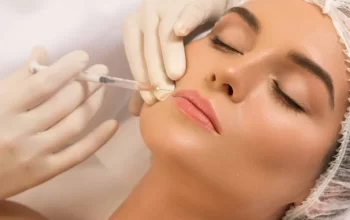Maintaining good hygiene is crucial for general health and well-being and includes keeping private part clean. Taking care of our private parts ensures comfort and confidence and promotes physical wellness.
Let’s discuss the importance of maintaining good hygiene and offer helpful advice.
Why is Private Part Hygiene Important?
- Prevention of infections: Yeast infections, urinary tract infections, and sexually transmitted infections (STIs) are just a few bacterial and fungal illnesses that can spread to the genital area.
Regular cleaning lowers the likelihood of contracting these infections by removing harmful microorganisms.
- Comfort and Freshness: Keeping things clean all day ensures comfort and freshness. People can prevent discomfort, itching, and other disorders by keeping their private part clean, dry, and free from irritants.
- Odour Control: Controlling unpleasant odours that may result from sweat, natural discharge, or bacteria accumulation is made easy by good hygiene.
Improved personal hygiene and intimacy confidence are also benefits of clean private areas.
Related Blogspot:
- How to Avoid Pregnancy, When to Take a Test, and More
- How to find best ladies doctor
- What is White Discharge
- What is PCOD
Tips for Private Part Hygiene
- Cleanse with Mild Soap: Use a light, unscented soap or intimate wash for sensitive regions to cleanse. Avoid using abrasive soaps or cleansers that might upset the pH balance and irritate the skin.
- Front-to-Back Technique: Always remember to wipe or cleanse the genital area from front to back when using the front-to-back technique.
Using this method limits the risk of urinary tract infections by preventing bacteria from transferring from the anus to the vagina and urethra.
- Avoid Overwashing: Although cleanliness is crucial, overwashing can upset the body’s normal balance of moisture and beneficial bacteria in private areas.
Wash once or twice a day unless a healthcare professional advises.
- Proper Washing Technique: Use a soft cloth or your hand to gently wash the external genital area with the correct washing technique. Rinse any soap residue to avoid irritation.
- Proper Undergarments: Pick breathable cotton pants that absorb moisture and allow air to circulate.
Avoid using synthetic or tight-fitting textiles that can trap heat and moisture and encourage the growth of bacteria.
- Change Wet Clothes: After swimming or working out, immediately change out of damp or sweaty attire. A breeding ground for germs, moist surroundings can cause discomfort or diseases.
- Be Mindful of Menstrual Hygiene: To stop the formation of bacteria, swap out your sanitary pads or tampons frequently when you’re menstruating.
To reduce discomfort and odour during this period, continue to practise good personal hygiene.
- Avoid Douching: Douching, or rinsing the vagina with water or other liquids, is unnecessary and might disturb the balance of good microorganisms in the body.
Conclusion
A vital component of comprehensive personal hygiene and well-being is private part hygiene. These easy recommendations can help people to keep their intimate areas clean, stop infections, and increase comfort. It is essential to be gentle, use appropriate products, and practise balanced hygiene. Consult a medical expert for more advice if you constantly feel uncomfortable or notice any worrying symptoms. Making hygiene of your privates a priority will make you feel better and more confident.




